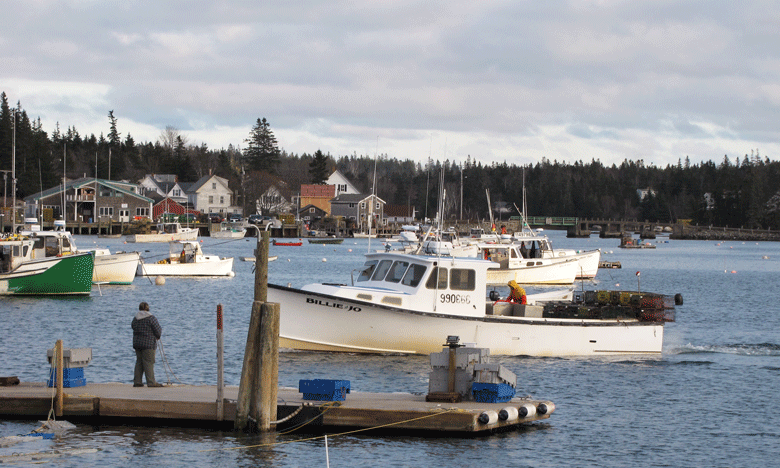In a major victory for Maine’s lobster industry, a federal appeals court in June ordered the National Marine Fisheries Service (NMFS) to go back to the drawing board and re-work the most recent federal regulation to protect endangered North Atlantic right whales.
In its decision, the U.S. Court of Appeals for the District of Columbia Circuit agreed with the plaintiffs, Maine Lobstermen’s Association, and plaintiff-intervenors the Maine Department of Marine Resources, the Maine Lobstering Union, and the Massachusetts Lobstermen’s Association, ruling that NMFS distorted the science driving the regulation, relying improperly on assumptions and worst-case scenarios when determining the risk posed by industry to right whales.
The court’s decision allows the current regulation to remain in effect while NMFS develops a new rule and does not impact recent Congressional action to delay further rulemaking until 2028.
The court has also overturned the biological opinion in which NMFS analyzed the risk posed by the lobster and Jonah crab fisheries to right whales, requiring NMFS to develop a new one.
“The decision vindicates what the Maine lobster fishery, and the countless communities that rely on it, knew all along…”
“Maine’s lobstermen and women have long demonstrated their commitment to maintaining and protecting a sustainable fishery in the Gulf of Maine,” the Maine congressional delegation and Gov. Janet Mills wrote in a statement responding to the news. “The decision vindicates what the Maine lobster fishery, and the countless communities that rely on it, knew all along—that their practices support the conservation of the gulf ecosystem for generations to come. We are pleased the court has acknowledged that the data set NOAA has been using to unfairly target Maine’s fishery is flawed.”
Patrick Keliher, commissioner of the state Department of Marine Resources, also hailed the ruling.
“I applaud the court for this decision and I’m tremendously proud of the collaboration by the legal teams for the Maine Lobstermen’s Association and the state,” he said. “Throughout the development of these regulations, NMFS has chosen a path not supported by law, lacking in guaranteed conservation benefits for right whales, and without regard for the tremendous economic harm their misguided approach could cause the people of Maine.”
Paul Weiland, attorney for DMR, said the decision “affirms the state’s position that the best available data and prevailing scientific methods should guide agency decisions.”
The appeals court stated that when NMFS claimed that it “needed to give the benefit of the doubt” to right whales over lobstermen, it was “egregiously wrong,” relying on a single sentence of legislative history instead of enacted law. “Here, the service misconceived the law, wrongly claiming the legislative history of the ESA had ordained—if legislative history could ever ordain—a precautionary principle in favor of the species. The service therefore gets no deference, and its action cannot stand,” wrote the court.
The court also ruled that despite NMFS’ own admission that nothing in law required it to use a worst-case scenario in the development of models that determine risk to right whales, its ultimate reliance on worst-case scenarios that are “very likely wrong” was arbitrary and capricious, and therefore unlawful.
The Endangered Species Act requires NMFS to use the best available science and to focus on “likely outcomes” not the worst-case scenarios, the ruling stated. A lack of data regarding the source of serious injury and mortality to right whales, the court ruled, does not compel NMFS to assign a high, rather than low risk to the Maine lobster industry. The ESA “requires the service to use the best available scientific data, not the most pessimistic,” stated the ruling.
The court noted that the lack of data led NMFS to conclude the lobster and Jonah crab federal fisheries kill 46 whale deaths per decade, a “staggering departure from the two documented deaths known to have originated in all U.S. fisheries over a period of nine years.”





